Is hunting more humane than factory farming? Does the method by which an animal is killed effect the ethics of their death?
Hunting is often brought forth as an ethical alternative to factory farming. But does the method by which an animal is killed effect the ethics of their death? [tweet this] And does killing our own dinner imbue the meal with greater justification than if it were factory farmed? There’s been quite a lot of debate over this ethical quandary, and I figured I might as well take a shot…y’know…cause it’s hunting? (That’s not a very vegan joke)
This is the second video in my series on common hunting myths. In the first, we looked at incredibly pervasive myth that hunting is necessary to control deer populations. Today we’re taking on the question of hunting’s ethical superiority to factory farming.
Even the staunchest meat, dairy and egg-eaters will readily agree that factory farming is far from ideal. It’s environmentally devastating, a serious health hazard for animals and humans alike, and an ethical land mine of horrific practices.
In case you’re not aware, factory farming, also known as intensive animal farming, industrial livestock production, or concentrated animal feeding operations, is a modern form of farming that focuses on producing the highest output at the lowest cost possible.
With money as the only focus, the lives and health of the animals involved, the environmental cost, and the impact upon consumer health are all left in the wake of factory farming’s destruction.
This method of farming, wherein animals are kept in higher stocking densities than was traditionally practiced, includes the use of battery cages, gestation crates, and requires ample use of antibiotics and pesticides to mitigate the spread of disease exacerbated by the overcrowding. Not only are the living conditions of these animal manipulated, but also their very genes as well.
All factory farmed animals have been genetically manipulated to produce more faster. These animals grow twice as fast, or more, than is natural, resulting in a myriad of health conditions and injuries. (See this example of genetic manipulation in turkeys) Then there’s the environmental devastation and the adverse health effects for humans to consider as well, which I won’t go into detail on in order to keep this video focused. You can get more information on the precise environmental cost of animal products in this video post.
Now before we try to comfort ourselves with the idea that this kind of farming is the exception to the rule, and desperately attempt to resurrect the vision of the local, family-run farm, we have to realize that 99 percent of all farmed animals raised in the United States are factory farmed. And according to the United Nations Food and Agriculture Organization, or FAO, 80 percent of growth in the livestock sector now comes from these industrial production systems with factory farms now accounting for 72 percent of poultry production, 43 percent of egg production, and 55 percent of pork production worldwide. [tweet this]
In comparison to this perverse method of acquiring our food, almost any alternative will look ethically preferable. And hunting, in particular, holds the gleam of being a far more sustainable, honest way of killing animals for our meals.
When we look at the numbers and methods side by side, it’s no question that hunting is far more sustainable. Thought hunting also has a negative effect on the environment and is the third most known cause of animal extinction since 1600, its impact is undeniably smaller than that of factory farming.
The idea the hunters are conservationist, however, is groundless, as hunters investment in habitat protection has nothing to do with the habitat itself and everything to do with ensuring future hunting opportunities. This is evidenced by the frequent hunters endorsement of clear-cutting large areas and logging on public lands as both create edge habitat for deer.
On the human health front, hunted animals are typically wild and not genetically manipulated, antibiotic-free and not living in their own filth. So on a pure hygienic, human-health stance, hunting would be preferable. That is, assuming that we need to eat animals, which is a pretty big assumption.
But what about the million dollar question? Is it more ethical to hunt and kill an animal for food than purchase animal flesh produced at a factory farm? [tweet this]
Well first off, the majority of hunting today is recreational. But let’s assume a hunter is hunting with the express goal of consuming the animal. Hunting proponents will argue that hunting is far more humane than factory farming as their prey hasn’t had to live in horrific, cramped conditions and their death will be swift and painless.
First, that’s assuming the hunter is an expert shot and can cause instantaneous death. Second, and more importantly, it’s assuming the completely unrealistic idea that a hunter can accurately asses how another being of another species experiences their death.
But again, for argument’s sake, let’s say a hunter is able to cause instant, painless death, which is rarely, if ever, the case. Is that death somehow cleansed of all wrong?
This line of questioning closely mimics the humane, free-range, and cage-free arguments. And I find that, statistics and philosophy aside, the best way to put all of this in perspective is to reframe the situation.
For instance, if I followed you around and then shot you, but made sure you died instantly, does that make it okay?
Since I didn’t keep you in a cage or castrate you or pump you full of antibiotics, can I wash my hands of your blood in good conscience?
If I am sure to use all of your parts and leave nothing to waste, does that give you comfort? [tweet this (if you dare)]
Would it comfort your family to know that used a bow and arrow to kind of even the playing field between us?
That’s bring up another issue: The idea that hunting is natural, or simply the circle of life is nothing but an ungrounded, romantic notion. [tweet this] Unless you’re able to complete your hunt and eat your kill without any weaponry, tools, or cooking, it’s not natural. And looking at our biological hardware and aversion to biting into an animals hide and consuming the raw flesh, blood, lymph, tendons and bones, it’s evident we weren’t meant for this.
This may seem an absurd visual, but it’s in these absurdities that we can better see the reality of the situation. Choosing between factory farming and hunting is like me asking you:
“Would you prefer to be skinned with a rusty spork or filleted with a cheese grater?” [tweet this] or
“Would you like to try our specialty turd sandwich or moldy baguette.” [tweet this]
In all seriousness, the comparison of factory farming comes down to the fact that the animal being hunted—that individual—doesn’t know the horrors they didn’t have to endure—they just know those horrors that they did endure.
We may be tempted to rank cruelty and find the lesser of evils, but the reality is we can eliminate all evils. Hunting may be less horrific than factory farming, but why must we choose which is worse when there’s a third option? [tweet this]
We don’t need animal products to survive and in fact thrive far better without them. And hunting, or “humane” farming, isn’t going to stop factory farming. It just adds more lives to the death toll. Death is still death, and murder is still murder. So let’s ditch the debate about which is worse and eliminate them both. [tweet this]
Now I’d love to hear your take on this matter. Do you think hunting is more ethical than factory farming? And does it even matter? Let me know your thoughts in the comments!
— Emily Moran Barwick


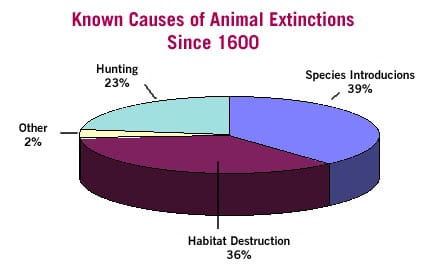

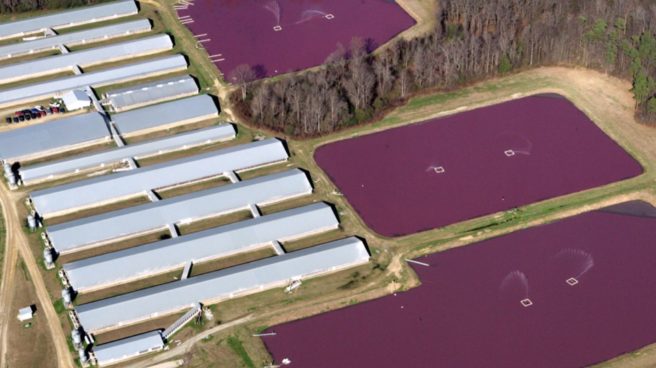
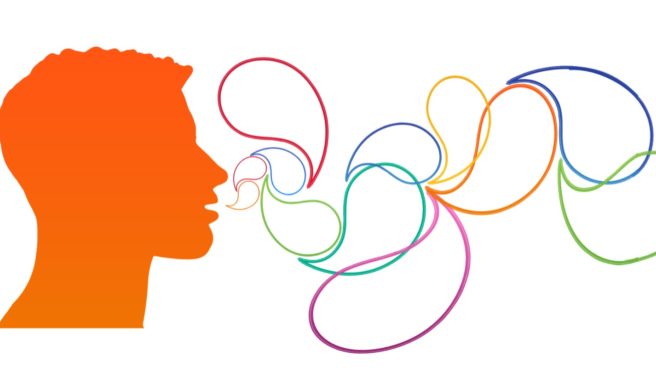
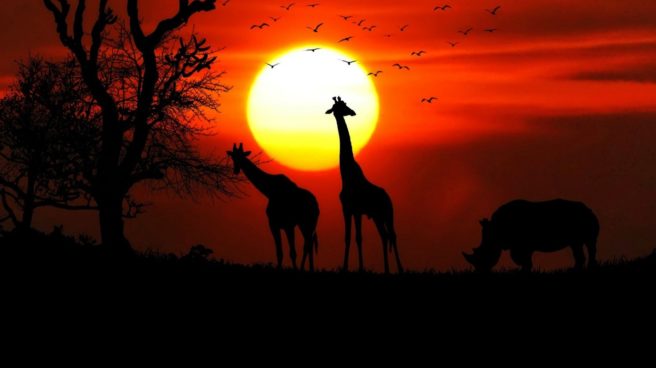
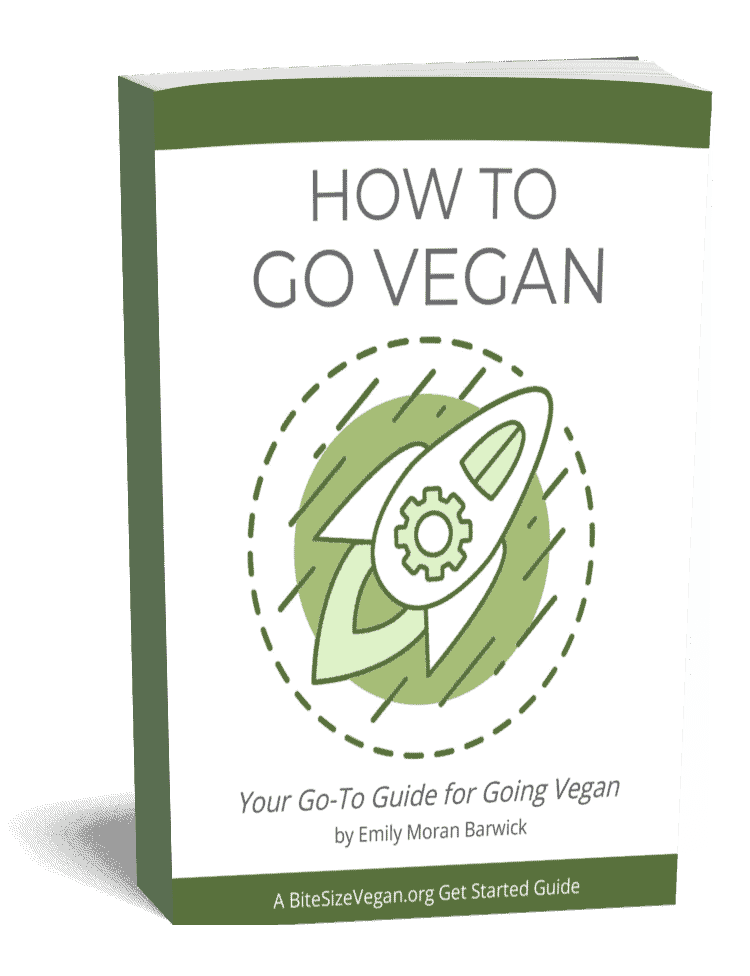
There is no such thing as “hunting.” There hasn’t been since advent of the ability to quickly kill at long safe distances. The activity engaged in today is technology aided slaughter – often team based. The cumulative intellectual and work product, lab tested, and factory made, of millions, many millions, of humans is utilized to simply kill a v 1.0 sentient beings. From ATVs to GPSs, scientifically tested baiting, calls, traps, poisons, and projectile weapons, wildlife does not stand a chance.
That v 1.0 sentient being has already been weakened by repeated endless technologically aided slaughter of the best / biggest of its species and has been forced to live in environments made increasingly toxic by humans and increasingly small to the point where they simply can not live naturally at all – free of the massively negative effects of humans. There simply is no “hunting.” That is the lie told by those who kill for pleasure.
“technology aided slaughter”- excellent. so well- stated. thank you for this incredibly thoughtful commment!
PZP (porcine zona pellucida) is an immunocontraception vaccine that can be used to control fertility in adult female deer and other mammals so there goes the excuse that hunters love to use that they are doing a good thing.
Also they love to say they kill deer to help the deer because with over population they starve. Then why is it the pictures of their kill are all healthy fat deer and not starving ones?
Hunters hunt because they love to kill, it is fun. They are sick brained.
death is death – there is no ‘ranking’ when lives are taken… as for the bow and arrow scenario – well, yeah, if the deer or other species had the same weaponry – but hey, that’s not going to work for them – equality would mean we face them with nothing but our agility, teeth and claws – wtf, you mean we’re not real carnivores?
very true! thanks so much for sharing this, sharon.
Another solid video, and thank you for providing some resources. I’ve far too often heard the argument that hunters care about the environment and non-human animals. Um, k. Then why kill one and help in the destruction of the other?! And if it’s really about “population control” couldn’t they do it in a more “humane” way – ie. one that didn’t involve fear, trauma, pain, and a slow, agonizing death? Let’s face it, it’s about “sport.” A horrifying one.
Thanks again for being a clear, coherent voice amongst the chaos. ;)
thanks for your input, Vegan Junction. and for your kind words- i’m glad to hear the vids are coming off well composed :)
One major point about hunting that most vegans try to sidestep, and that was not discussed in this video, is the hunting of feral animals. You stated that hunting is detrimental to the environment – almost as if it were fact. But there can be little doubt that removal of feral animals is beneficial to the natural environment. In Australia, for example, almost the only hunting that is legally permissible is that of feral animals, including pigs, deer, rabbits, foxes, cats, goats etc. The only exception I can think of is the hunting of just a few species of native duck for a specific season timed not to interfere with their breeding. All of these feral animals have negative impacts on the environment. What’s more, hunting the edible feral animals produces few greenhouse emissions and uses little water – much less that what would be used to derive the same amount of protein from vegan food sources. As for the argument about hunting possibly causing pain and suffering to a targeted animal? Do you believe that all wild animals die a peaceful death, dosed up with morphine, and having their hooves held by loved ones? I think not…..
Greg, thanks so much for sharing your perspective. i think the key is that we aren’t wild animals hunting other wild animals. we don’t need to hunt and don’t need to eat animals to survive, so that argument is moot. also, modeling our behavior on wild predators is a slippery slope- unless we want to run around naked, sleep outside, tear into live animals hide and all- we can’t really use their behavior as an example for us. as for feral animals, i can look into doing a video on that, but i’d still argue he ethical principles of the issue stand.
Fantastically well made points Joy…I’m gonna have to ‘steal’ those great phrases, and images: cumulative millions of human minds and years of technology, versus v 1.0 animal on other hand…and “technology aided slaughter”… such good points made so well, thank you!
I have nothing to add to your eloquence or your analysis..but will mention one technology..you did just remind me of it, a little google and I found this: tracking-point.com/how-it-works
Basically a complete novice can out-shoot an “Expert” human because you basically tell the gun what your target is, and *it* tracks, and you “squeeze and hold the trigger” while it, the machine, *it* selects the precise instant to actually “pull the trigger” to guarantee a hit.
“A Precision-Guided Firearm is a comprehensive, purpose-built weapon system. It incorporates the same tracking and fire-control capabilities found in advanced fighter jets. Shooters of any skill level can now shoot better than the best shooters who ever lived.”
“WHAT IS DOES: A TrackingPoint Precision-Guided Firearm ensures never-before-seen precision at extreme distances and high target velocities. Here’s how:TriggerLink™ connects the tracking optic with a guided trigger. Tag-and-Shoot™ technology lets you designate an exact target impact point. The tracking system then guides the trigger release.”
All for “only” 7,000 to 19,000 bucks they say…the prices will unfortunately probably come down.. hopefully (especially thanks to Emily among others) we can spread the vegan mesasge, health, envrionment, and definitely ethics, faster than this technology spreaders or becomes cheaper
Yup, the tracking does it all for you, it’s press-a-button slaughter. Next version the automated machine will “spiritually honor” the animals you just kill, “for you” so you don’t have to do that either… Some (very) grim humor there..
What a great topic to sink one’s teeth into! I would have to add, morality aside, that “hunting” is an addiction of the creepiest kind. I know of no other way to explain it. All of the false rationales and excuses to keep it going . . . and for so many it just gets weirder and bigger and worse.
I would love to see a piece on feral animals and what to do or not do. I spent some time working for the National Park Service and saw what havoc feral pigs could wreak and they are rampant in so many places. I also happen to love feral pigs. They are incredibly smart, have an enormous number of vocalizations, are sociable critters and not aggressive if not routinely fed by park visitors. They will mind their own business and do their thing of destroying native ecosystems and breeding wildly due to a lack of natural predators. Not even mountain lions care to tackle feral pigs. I have thought about this endlessly and have no answer unless there is some way to easily sterilize these populations. Seems if we can shoot people into space and explore Mars, we ought to be able to solve this one without resorting to murder.
I do hope to eventually cover feral populations. I’ve only alluded to the issue somewhat in the past. I do have to say that our “solution” of “culling” (killing) so-called “invasive” species that were actually introduced by humans is such a poignant example of punishing the innocent for our own actions. A line I’ve said many times is “we humans love to be the saviors in the disasters of our own creation”…
Since your a vegan, what are your thoughts on GMO’s being the only way to sustainably produce enough food for the population? Not to mention a lot of environments have been destroyed from over farming and the use of chemicals to aid in farming to produce the amounts needed by the population including vegans.
I’m an avid gardener that uses no chemicals and I’m a former vegan turned hunter. I’m not aided by “technology” other than a gun. I take only enough animals to feed my family of four for a year and that is for around 2 meat meals a day for about 6 days a week. Factory farming is abusive and detrimental to the population. We are so far removed from understanding where our meals come from that it’s taken for granted. If people had to work for their food instead of just buying it from the store there would be a lot more respect for the environment and animals. Obesity and heart disease , to just name a few, would be on the decline because you couldn’t over eat the processed and non organic food that you were never meant to consume anyway.
Don’t attack hunters. Not all of them are bad. Hunting for trophies is worthless. Just like taking more than you can eat and the grocery store and then throwing it out is worthless. Waste not want not.
I don’t think GMOs are the only way. We already produce more than enough food to feed all the hungry people in this world. I’d recommend checking out “Can Veganism Solve World Hunger? An Honest Answer“
killing an animal is killing an animal no matter how they try to make a stand. The way forward is vegan! we have all been lied to for far too long..we need to listen and go with our hearts..Every human has compassion (with the exception perhaps of some very sick individuals)
All of that would made a sense. But. But what about deaths during harvesting plants? I imagine it is by far the worse. If you eat, you kill. The only question is – do you kill more animals when eating plant protein vs. there is more death when eating animal protein? And you and I know, that large animals and especially game provides more protein with lower number of dead animals. Even vegans admits there is like 1.3 dead animal per 100 kg of plant protein. Which is less bioavailable and the number is actually higher according to many experts. Even with this number, game wins hands down.
Barbora, I actually have a video and article specifically addressing the animals killed during harvesting plants. That digs more into that issue.